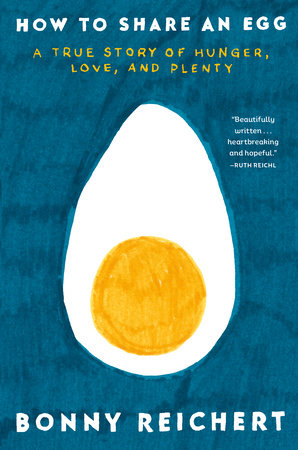1BorschtWe are starving. It’s midafternoon on a rainy Wednesday, and our tour guide’s gray Skoda lurches and pauses—go, stop, go—as we crawl away from the cemetery through narrow backstreets. Squished in the back between my sister Julie and my dad, I feel like a little kid—hot, claustrophobic, nauseous.
“If I don’t eat something right now, I’m going to faint,” Mom says from the front. My sister and I scroll and tap on our phones. It’s well past lunchtime, and places have closed for the afternoon. Why didn’t Ewa book a reservation? She’s our tour guide in Warsaw, after all, and what could be more important than feeding hungry people who are depending on you?
“Okay, here.” Ewa jerks the car to the right and drives up on the sidewalk with two wheels. She hits the brakes and yanks up the emergency. The car tilts precariously.
“Where are we?” I ask.
“You’ll see.”
Julie cracks open her door and steps out to help Mom. I slide out next, relieved to put my feet on the ground. I reach into the car to take Dad’s hand, and our palms lock as he works his way onto the sidewalk. The rain has stopped, and his hair glows silver in the flat June light. His belly protrudes a little under his navy blue golf jacket. At eighty-four, he isn’t exactly light on his feet, but as we follow Ewa, Julie, and Mom toward a run-down brick building, he seems to almost float.
We walk under an archway and part a pair of dusty black curtains, finding ourselves at the threshold of a dimly lit restaurant. Rectangular tables and beat-up chairs are arranged around the room, every single one empty.
Damn. We are a family that doesn’t eat in dead restaurants. After a lifetime in the business, Dad hates them more than anyone. No customers means no money, depressing even if you aren’t the one with an empty wallet. But now all I hear is his labored breathing behind me. I turn around to find him staring into space.
“Dad?”
“This is lovely. Let’s sit down.”
“But look at this place. It’s—”
“There.” Still tour-guiding, Ewa is pointing toward a scarred wood table and signals to a made-up blonde behind the bar. The woman puts her cigarette in an ashtray and ambles over with menus. The air is blue with smoke. I touch my right temple where a little vein pulsates steadily.
I know the food will be awful, so I don’t bother trying to decipher the Polish menu. Across the table, Mom is pale and tiny, wrapped in her shawl from the cemetery. I want to order her a hot coffee, but the waitress spoke only to Ewa, now sitting beside Julie at the other end of the table, and disappeared.
How did I end up here? I planned to live my whole life never setting foot on Polish soil. My father was born here, yes, but to me, Poland has always meant a starving ghetto, a train ride into hell. For my entire forty-six years, Dad all but forbade me from coming, and I was happy to be forbidden. “Let the people who don’t know what happened go,” he said when my friends traveled to Europe on Holocaust education trips. “I suffered enough. You don’t need to.”
A single phone call changed Dad’s mind with dizzying speed. Two weeks ago, a distant relative told Dad a family tomb had been discovered in Warsaw. “I have to see it,” Dad said.
Everything would have been different had that call come before Mom’s memory started to slip. “Poland?” She would’ve laughed at the suggestion. Mom likes nice places, comfortable places. They both do. Misery is not their style. And yet, here we are. The ache in my head intensifies and I close my eyes.
We left the hotel for the cemetery after breakfast, bundled against the damp spring air. Buses zoomed up Okopowa Street, and students from the nearby trade school clogged the sidewalk, but inside the cemetery’s iron gates, the headstones were wrapped in spongy silence.
“We have to find the shomer,” Ewa said, her short red hair frizzing up in the dampness. It was strange to hear the Hebrew word on her lips. “Szpilman. He’s the only one who knows which graves are where.”
We came upon him hunched over an ancient computer in a bare room with a dirt floor. He was younger than I expected, with a kippa on his head and wire-rimmed glasses. As we crowded into his office, Ewa lifted her chin and Dad took a roll of zlotys from the pocket of his pants. Like a maître d’ in a Florida restaurant, Szpilman palmed the money without looking up.
Once, the Jews of Warsaw comprised a third of the city’s population, but they were long gone, their houses and entire district razed to the ground. Ewa wasn’t sure how this ancient cemetery survived and, honestly, I didn’t care that much. We were from a little town near Lodz called Pabianice, not Warsaw. Dad’s father had died in Pabianice before the war, while his mother, sisters, and nearly all his aunts, uncles, cousins, and extended family had been murdered in the Pabianice ghetto, the Lodz Ghetto, Auschwitz-Birkenau, or somewhere on the bloody road in between. No vast cemeteries, no special tombs. Just complete and utter erasure. Who could the grave even belong to?
“Spell the name, please,” Szpilman said in accented English.
“R-o-t-h-b-l-a-t,” Julie said. It was Dad’s mother’s maiden name.
Szpilman tapped a few keys. “Sector 47, row 7, number 36.” He came from behind his rickety desk and strode toward the main aisle of the cemetery as I hurried to keep up. Julie took Mom’s arm. Dad walked alone, kicking loose stones out of the way with his white loafers.
When Szpilman left the main path, I followed him into the brush, looking down for tree roots and mud puddles. The others were far behind.
“Okay,” he said, stopping abruptly.
The headstones were huge and so tightly arranged, they almost overlapped. Ferns sprung up between a carpet of leaves. For a moment, I thought of my kids at home. This would be a good place to look for frogs.
Szpilman pointed to an ornate stone taller than my shoulders, with pillars on the sides and a curved top. It was gray, with a fine green moss growing near the bottom. I ran my fingers over the engraved Hebrew letters, sounding out the name שׁלמה ראטבּלאט. A crash in my rib cage. “Dad,” I yelled. “We found it. It’s here!”
My father came up and stood beside me, his face inches from the stone. “Shlomo Rothblat,” he said slowly, once, then again. “You see?” he whispered, finally turning to me with tears in his eyes. “It’s my name carved into this old piece of stone.”
Like so many times before, Dad had been right to believe. His mother was born in Warsaw—a simple fact I’d somehow overlooked amid all the more sinister facts—and this hundred-year-old tomb belonged to her father. Shlomo Rothblat was not some mysterious stranger. He was Dad’s grandfather and my own great-grandfather, a pillar of his community and a beloved scholar who died before my father was born. Dad is even named after him: Shlomo translates to Solomon, which Dad shortened, after arriving in Canada, to Saul.
Suddenly, my father became joyful. He raised his arms over his head in triumph and danced around. Mom and Julie walked up and we all joined hands in an impromptu hora, grateful for such an unexpected, beautiful moment.
Still, enough is enough. I look down the table at Mom, rub my temples, check the time. We did what we came to Warsaw to do, and now it’s time to go home. How long do we have to sit in this terrible restaurant?
The waitress arrives, carrying little plates: a pile of pickled cucumbers, carrots, and cauliflower; a saucer of hard salami rounds studded with nuggets of fat. In front of Dad, she places a stack of black bread, thickly cut, with several squares of butter and a little mound of sea salt on the side. Dad picks up a slice and smells it in a gesture I’ve seen a thousand times.
My shoulders release. Even if the next course is fried horse meat, or a Polish army boot that’s been frozen since the war, we will not starve. My mother pulls the pickles closer and pinches a carrot spear between her manicured fingernails. Ewa and Julie nibble at the salami. Dad hands me a slice of bread, lavishly buttered and glittering with salt flakes. He makes another one to pass down to Mom. We wolf everything down in silence.
When our waitress returns, she is carrying a long glass dish with a series of little compartments. One is filled with chopped cucumbers, another with boiled potatoes, a third with purple cubes of beets, a fourth with sour cream, and what’s that green at the end—chopped dill?
Hustling a bit now, the waitress comes one more time with five ceramic bowls on an oversized tray, the cook behind her in a jacket that was once white. I hold my breath as he places a bowl in front of me.
“Dziekuje,” I say, using one of my two Polish words.
He bows slightly and backs away.
Copyright © 2025 by Bonny Reichert. All rights reserved. No part of this excerpt may be reproduced or reprinted without permission in writing from the publisher.







